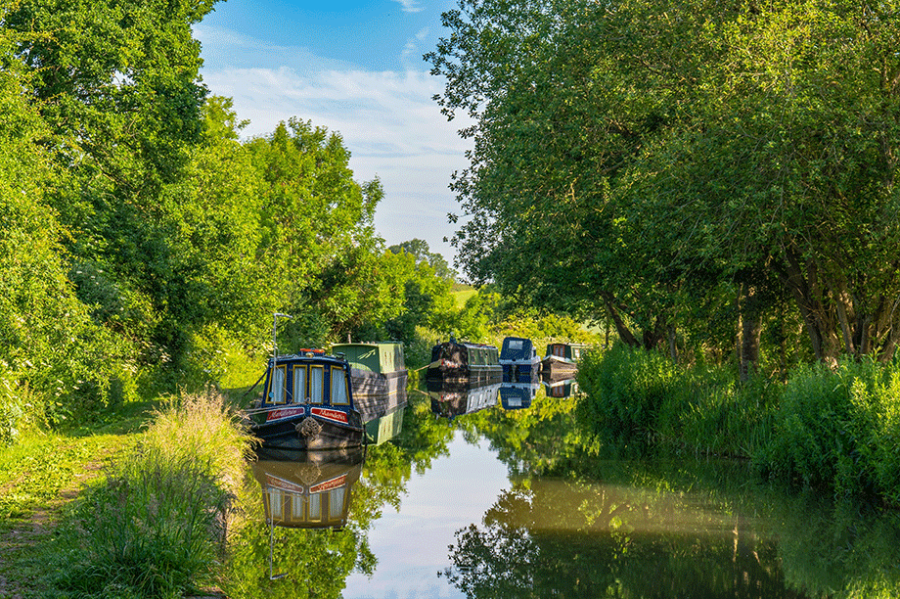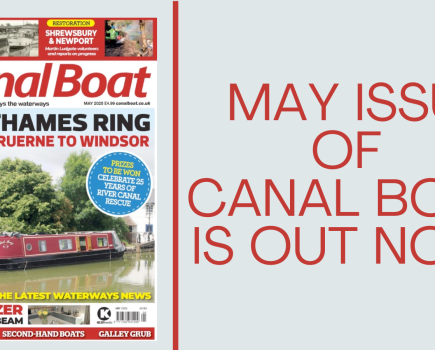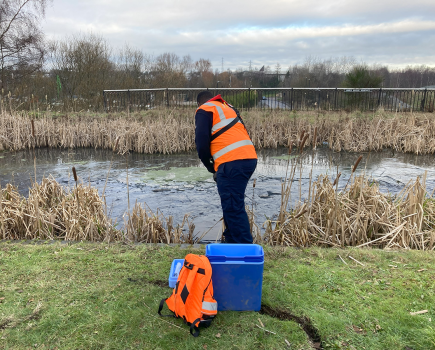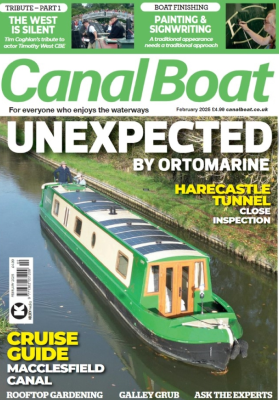Following today’s announcement from the Government, Canal & River Trust is issuing a stark warning that a reduction in grant funding of over £300 million in real terms will threaten the future of the nation’s historic canals, leading to their decline and to the eventual closure of some parts of the network.
The reduced grant from 2027 will almost halve the value of public funding for canals in real terms compared with recent years. This comes despite a Government Review, shared with the Canal & River Trust and expected to be published, confirming that its funding is ‘clear value for money’, with canals shown to deliver substantial benefits to the economy, to people and communities, and to nature and biodiversity.
The reduced funding comes at the same time as the costs of maintaining historic canals are increasing, due to the growing impact of climate change, with more periods of drought and extreme storm events taking their toll on ageing 250-year-old infrastructure.
Richard Parry, Canal & River Trust’s chief executive, whilst welcoming the Government’s commitment in providing long term support to such a critical national network, warned that, unless a more realistic funding settlement is secured, it will turn the clock back on one of the nation’s greatest heritage regeneration stories and lead to the loss of substantial public benefits.
“We are tasked by government to care for and manage safely this important and historic infrastructure. Government has confirmed the value and importance of the nation’s canals and their vital role in our health and wellbeing, for wildlife and nature, and in supporting jobs and the UK economy. Yet, at the same time, they have announced a funding decision which puts the very future of canals at grave risk,” Parry said.
“By sharply reducing their investment in the critical work to care for and safely manage this vulnerable national canal infrastructure, the Government is failing to recognise the full cost of sustaining the vital benefits they provide. We have ambitious plans for continued growth in income from donations, investments and other funding streams and are also growing volunteer numbers to help with our work. However, even taking these into account, the decision by government leaves a substantial funding shortfall which puts decades of restoration and recovery of these much-loved historic waterways at risk.
“Our industrial canal heritage is as vital today as it was in the past, and will continue to be in the future, by bringing the benefits of green space and nature corridors into urban areas, as well as contributing to flood defences and transferring water to areas of shortage. It is a critical part of our national infrastructure, and its decline would impact communities across the country.”
Parry warns the funding cuts will have a “potentially devastating impact” on the Canal & River Trust’s ability to care for and protect the 2,000-mile-long waterways network and its heritage – the locks, reservoirs, bridges, tunnels, aqueducts and embankments. At a time of increasing costs, the proposed cuts will see the value of public funding for canals reduce in real terms by more than 40% – or over £300 million in total – compared to recent levels.
“The Canal & River Trust, together with all those who use the canals, the boat-owners and anglers, the businesses that depend upon them, and the millions of towpath users, is determined to keep making the case for a sustainable partnership with government, crucially with the funding that the future of the canals depends upon,” Parry said.
The nation lost many hundreds of miles of waterways in the 20th century, but in the past 50 years they have experienced an extraordinary renaissance. Today there are more boats on the canal network than at the height of the Industrial Revolution and the network provides vital green space by water and access to nature to more than ten million people each year.
Independently verified research using government methodology has found the Trust’s canals support 80,000 jobs and contribute £1.5 billion annually to the economy. They deliver £4.6 billion of social welfare value to people and communities, including health benefits that contribute £1.1 billion in savings to the NHS from the millions of people making active use of its waterways and their towpaths.
The Canal & River Trust continues to develop other sources of income, considerably reducing the share of its funds from government when compared with the former publicly-owned British Waterways, now less than 25% of its total income. Even after taking into account ambitious plans to further increase its commercial and charitable income and to grow volunteering, the scale of the reduction in government funding would mean deep cuts to canal maintenance and repair, leading ultimately to canal closures.
Parry urged people to show their support for the nation’s canals by lobbying their local MP and backing its campaign to keep canals alive at https://canalrivertrust.org.uk/keepcanalsalive.
The Government’s Written Statement is available to view at: https://questions-statements.parliament.uk/written-statements/detail/2023-07-10/hcws924








